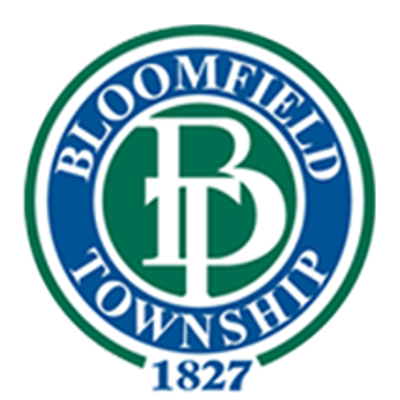Why is there a millage request on the August ballot?
Collaboration is key in municipal government and has been one of my favorite parts of the job. The way the Board of Trustees has worked together to focus on services and sustainability of our Township has been nothing short of amazing. The administration has found efficiencies in our departments, sought out even more grants, and strengthened our regional partnerships with other communities in shared services like our Police Co-Responder program. I also tasked former police Chief Langmeyer to solve the issue of overweight trucks destroying our major roads. He and Sergeant Shoemaker worked with DPW Director Noah Mehalski to create our weigh station on the Township campus. We now have 4 officers trained to spot, inspect, and fine overweight vehicles and to get the word out to the trucking companies to either comply with weight restrictions or find another route.
We also faced the 2018 question of, how can we provide long term stabilization of our public safety resources and services without going outside our 10 mil cap? The changes we made improved our financial standing, so we no longer needed to go outside the millage cap and ask for a SAD. We looked back at 2018 and saw that it failed for a few main reasons: a SAD assessed us above our means of 10-mils, was not a dedicated millage, and there were too many millages that required special elections on off years. We listened to the residents and went to work on restructuring, rethinking, and reprioritizing so we address the 2018 concerns from the residents.
Since legal ballot language always makes simple concepts very confusing and frustrating to decipher, due to statutory requirements, here is my best attempt at explaining the proposed public safety millage ballot proposal and what is being asked of all of us residents in regular English.
1. This is a millage under our 10 mil cap, not a SAD. Making this a millage, and not a SAD, makes us more accountable to stay within our 10 mil means of taxing. The SAD process is meant for neighborhoods to improve their individual infrastructure, not as a way for the Township to go outside our cap.
2. This is a dedicated millage, not a general fund millage and elected officials can only use these dedicated funds for public safety. As a result the residents know the money will be focused on providing the best resources, equipment, and first responders necessary when you call us in crisis.
3. We combined two public safety millages into one new millage with an increase. We currently have four separate dedicated public safety millages. Two of those millages are voted on in off year elections that are costly and have lower attendance. Combining public safety millages to eliminate special elections saves money and encourages voter response.
- Cost benefit of saving over $125,000 by eliminating a special election next year n Higher attendance means a greater voice – the highest voter turnout occurs in the gubernatorial and presidential election cycles. Combining millages on those ballot cycles increases the number of people who vote. 4. Staying under the cap, even with the requested increase. The increase still puts us lower than the last 40 years due to Headlee rollbacks.
- 1982 we had four public safety millages totaling 7.4056 mils
- 2004 we had four public safety millages totaling 6.4486 mils n This proposal will cut us to three millages and with the increase will have public safety millages totaling 6.4087 mils
5. Provides sustainability for capital expenditures like ambulances, bulletproof vests, fire trucks, and lifesaving equipment that is currently bought with grants. We will continue to solicit those grants, but grants are not guaranteed and sometimes don’t cover the whole amount. For example, we got a $500,000 grant from the state of Michigan for our SOAR truck in the Fire Department. That grant process took almost 2 years. In that time the price of the vehicle went up to $800,000 due to supply chain issues and we must now make up the $300,000.
6. Allows the Township to bring back services like the neighborhood traffic patrol as a presence to slow down drivers in neighborhoods. Since that unit was removed in 2018, the most common call to the police (outside of criminal activity) are the ones about increased traffic speeds, volumes, and noise levels in the neighborhoods.
7. Helps reduce overtime costs and burnout within the fire department to reduce potential risk to first responders and to residents. Current staffing has caused about $700,000 in overtime over the last year to staff when people are sick or out with injuries. Although it is legal to have a responder who is working on 48 or 72- hour back-to-back shifts, it is not an ideal model. By staffing at levels on 24-hour shifts, you are better served with fresh and ready first responders and they are more likely to stay here with a good work/life balance as well.
This is a dedicated millage, under the 10-mil cap, and combines two millages to reduce the number of elections and move them to the busier election cycles for higher turnout. Unfortunately, these facts get lost in translation with the legal wording required for the ballot language. I hope this description helps explain what the ballot proposal is asking for, so you have the information you need to make your decision.
